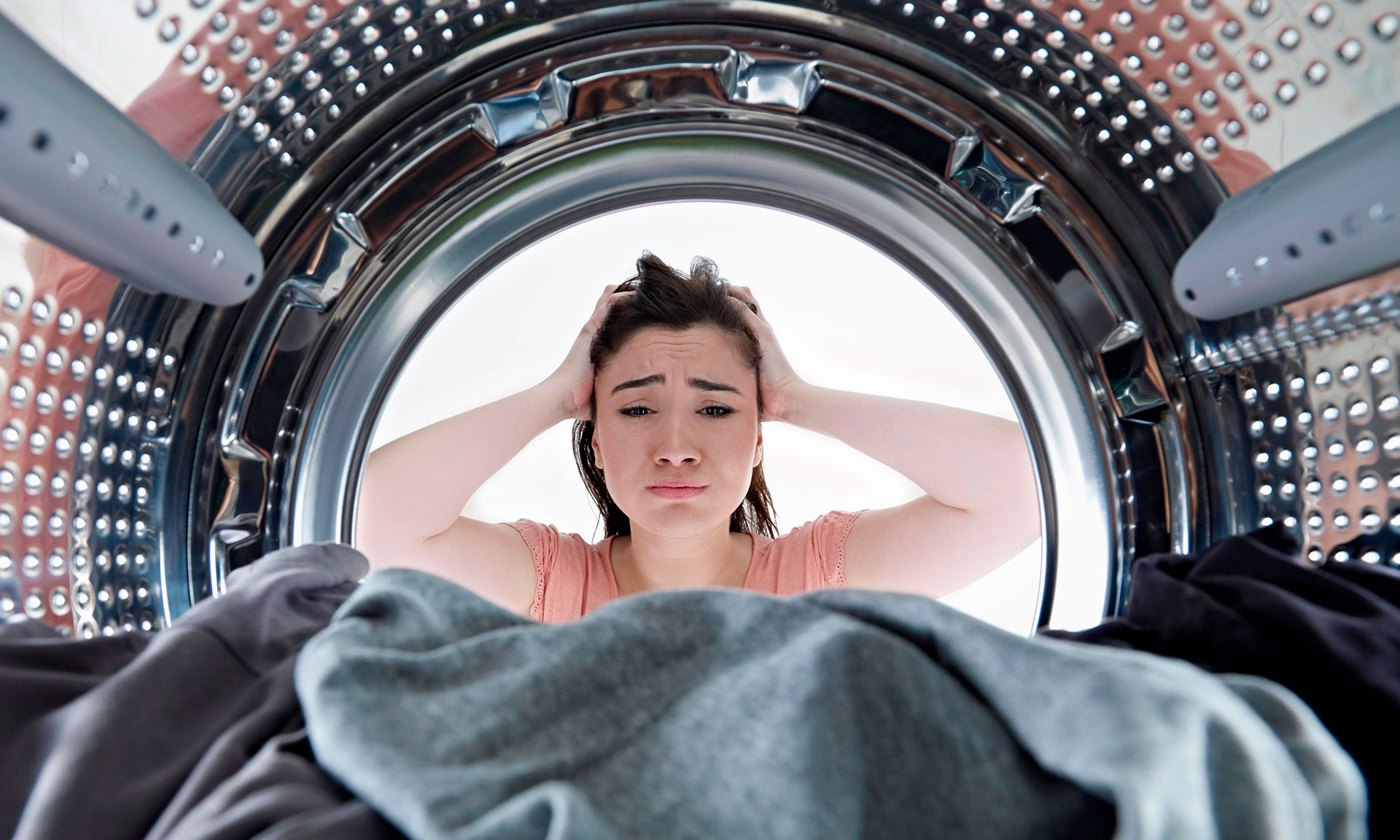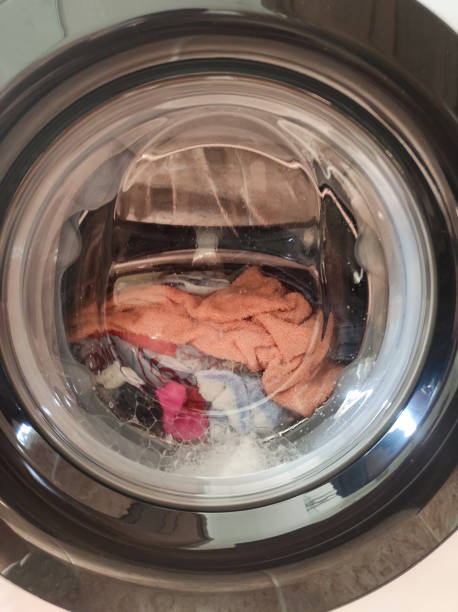From forgotten tissue scraps in pockets to accidental washes, the clash between delicate paper and robust machinery is an intriguing topic.
So, will tissue damage a washing machine? Understanding the possible outcomes of tissue entanglement is essential for preserving your laundry and the machine.
For that matter, I will delve into the interactions between tissue and washing machines, shedding light on whether this seemingly innocent pairing might lead to unexpected consequences.
Let’s unravel the mysteries behind tissue damage and its impact on the world of laundry appliances.
Will Tissue Damage a Washing Machine?
Yes, tissue may damage a washing machine if it’s not properly disposed of before running a wash cycle, but it is unlikely to happen.
Tissues are made of paper, which can break down and disintegrate when exposed to water, heat, and agitation in a washing machine.
If tissue fragments become dislodged during the wash cycle, they might get caught in various parts of the washing machine, such as the pump, drain, or the drum itself. This can lead to clogs, reduced efficiency, and potential damage to the machine’s components.
To prevent this from happening, it’s important to check pockets and make sure there are no tissues or other small paper items left in clothing before loading them into the washing machine.
Additionally, a mesh laundry bag can help contain small items like tissues, preventing them from getting loose and causing problems inside the machine.
Suppose you accidentally wash items with tissue and notice any residue or fragments afterward. In that case, cleaning the machine and its components is a good idea to prevent any long-term damage.

Potential Risks of Washing Tissues
When it comes to washing machines, the old adage “out of sight, out of mind” doesn’t always hold true.
Tissues, those seemingly innocent pieces of paper you encounter every day, have the potential to wreak havoc on your washing machine if not handled properly.
Components at risks
Tissues, primarily composed of paper, have a tendency to break down when exposed to water and mechanical agitation.
Once they disintegrate, the resulting paper fragments can easily make their way into critical parts of your washing machine.
The intricate network of pumps, drains, and drums that work seamlessly to clean your clothes can quickly become clogged with these fragments, leading to a range of problems.
The threat of clogs
Clogs caused by tissue fragments can significantly impede the functioning of your washing machine.
A clogged pump or drain will prevent water from draining properly, potentially causing the machine to stop mid-cycle or leading to water leakage.
In the worst-case scenario, a severe clog might even damage the pump, requiring costly repairs or replacements.
Reduced efficiency and performance
Even if a tissue-related clog doesn’t occur immediately, the presence of tissue fragments in your washing machine can reduce its overall efficiency.
The machine might struggle to distribute water and detergent evenly, leading to uneven cleaning results. This means that your clothes might not come out as clean as you’d expect them to be.
Potential component damage
The moving parts of a washing machine, including the drum and agitator, can suffer from tissue-related damage.
Paper fragments can become lodged between these components and cause undue stress on the machine’s mechanisms.
Over time, this stress can result in premature wear and tear, leading to the need for repairs or even a replacement washing machine.
Consequences of neglect
The repercussions of neglecting to remove tissues from clothing before tossing them into the washing machine can be far-reaching.
Beyond the damage to the machine itself, your laundry can be adversely affected. Tissue fragments can adhere to your clothes, leaving unsightly white specks or even causing damage to delicate fabrics.
Financial and environmental impact
The costs associated with repairing or replacing a washing machine can add up quickly.
Regularly subjecting your washing machine to tissue-related damage can lead to frequent breakdowns and repairs, resulting in both financial and environmental strain due to the need for replacement parts and disposal of non-functional appliances.
What to Do If a Tissue Goes Through Wash
If a tissue goes through the wash and you notice tissue fragments on your clothes or suspect some might have reached your washing machine’s interior, take immediate action to prevent potential damage.
- Stop the Machine: If you’re in the middle of a wash cycle and suspect tissue residue, pause the machine to prevent further agitation.
- Inspect the Drum: Carefully open the washing machine’s door and inspect the drum and clothes for tissue fragments. Gently remove any visible pieces.
- Clean the Drum: Run an empty cycle on the hottest water setting with no detergent to help dislodge and flush out any remaining tissue fragments from the drum.
- Check the Pump and Filters: Refer to your washing machine’s manual to locate and clean the pump and filters if necessary. Tissue fragments may accumulate there, leading to clogs.
- Re-Wash Affected Items: Re-wash the clothes with tissue residue, preferably inside a mesh laundry bag, to contain any remaining debris.
- Regular Maintenance: To prevent future incidents, remind everyone to check pockets before loading clothes and consider using mesh laundry bags for small or delicate items.
Remember that acting promptly can help minimize damage to your washing machine and ensure that your clothes come out clean and free of tissue fragments.
Related: Will Bleach Damage My Washing Machine?

Other Common Items to Watch For
While tissues are certainly a concern, there are several other everyday items that can also pose a threat to your washing machine’s optimal functioning.
Being vigilant about these potential culprits can save you from unnecessary repairs and ensure a smooth laundry process:
- Loose Coins and Small Objects: Coins, buttons, and other small objects left in pockets can become dislodged during the wash cycle. These items might not only damage your clothes but can also lead to clogs and damage within the washing machine itself.
- Delicate Items with Hooks or Clasps: Delicate items like bras or clothing with hooks, clasps, or embellishments can easily get caught on other garments or the drum’s agitator. This can cause tearing, stretching, or even damage to the machine’s mechanisms.
- Excessive Pet Hair: If you have furry companions, their hair can accumulate on clothes and form clumps that may clog the machine’s drain or filters. Regularly removing pet hair from clothes before washing and using lint traps can help prevent this issue.
Conclusion
So, will tissue damage a washing machine? Yes, tissue may damage a washing machine.
The paper-based composition of tissues can disintegrate during a wash cycle, leading to clogs in components like pumps, drains, and drums. This can reduce efficiency, operational issues, and even machine parts damage.
By practicing vigilant habits such as checking pockets, using mesh laundry bags, and raising awareness among family members, you can effectively prevent tissue-related damage and ensure your washing machine’s longevity and performance.







